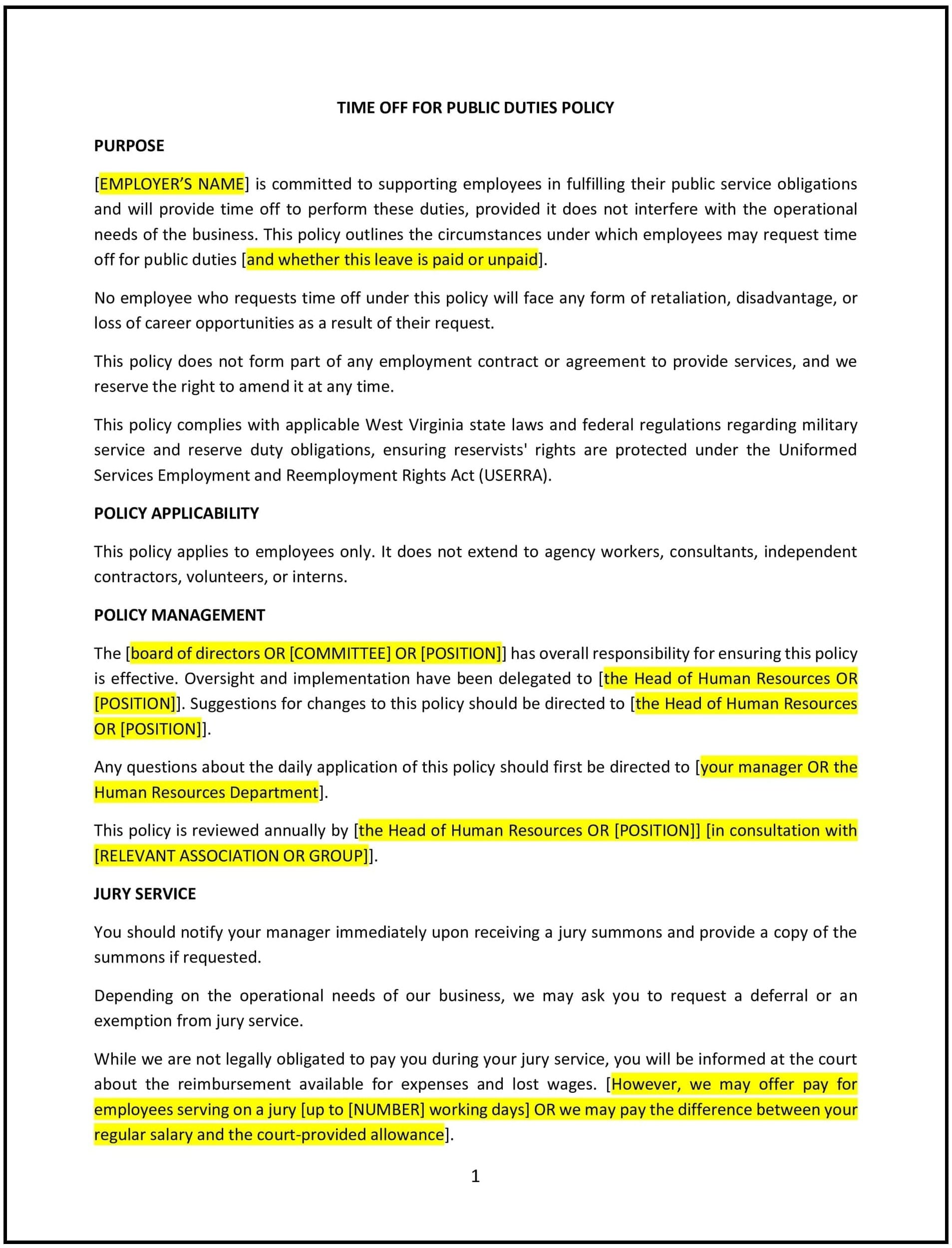Time off for public duties policy (West Virginia): Free template
Got contracts to review? While you're here for policies, let Cobrief make contract review effortless—start your free review now.

Customize this template for free
Time off for public duties policy (West Virginia)
In West Virginia, a time off for public duties policy outlines an organization’s approach to supporting employees who need to fulfill civic responsibilities, such as jury duty, voting, serving as a witness in court, or participating in other public service activities. This policy supports compliance with state and federal laws while balancing workplace needs with employees’ rights and responsibilities.
The policy defines eligible activities, procedures for requesting time off, and guidelines for managing employee absences related to public duties.
How to use this time off for public duties policy (West Virginia)
- Define eligible activities: Specify public duties covered under the policy, such as jury duty, voting, court appearances, or serving in public office.
- Outline request procedures: Provide steps for employees to request time off, including notice requirements and documentation, such as jury summons or court orders.
- Address pay and benefits: Clarify whether time off for public duties is paid or unpaid, depending on the type of activity and organizational practices.
- Ensure job protection: Reaffirm employees’ rights to return to their roles after completing public duties without facing retaliation or adverse treatment.
- Support compliance: Align the policy with West Virginia laws and federal regulations governing time off for public duties.
Benefits of using a time off for public duties policy (West Virginia)
- Promotes civic engagement: Encourages employees to participate in public service activities without fear of workplace repercussions.
- Supports compliance: Improves adherence to West Virginia labor laws and federal regulations protecting employees’ rights for public duties.
- Enhances trust: Demonstrates the organization’s commitment to supporting employees in fulfilling their civic responsibilities.
- Reduces conflicts: Provides clear guidelines for managing absences related to public duties, minimizing misunderstandings.
- Maintains operational continuity: Establishes procedures to manage workloads during employee absences effectively.
Tips for using a time off for public duties policy (West Virginia)
- Communicate the policy: Share the policy with employees during onboarding and ensure it is accessible for reference when needed.
- Train managers: Provide training to supervisors on handling time-off requests related to public duties fairly and consistently.
- Maintain documentation: Keep records of employee requests, approvals, and supporting documents to ensure transparency and compliance.
- Plan for coverage: Develop strategies to manage workloads during employees’ absences, such as cross-training team members.
- Review periodically: Update the policy to reflect changes in West Virginia laws, federal regulations, or workplace practices.